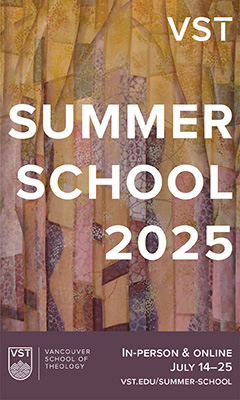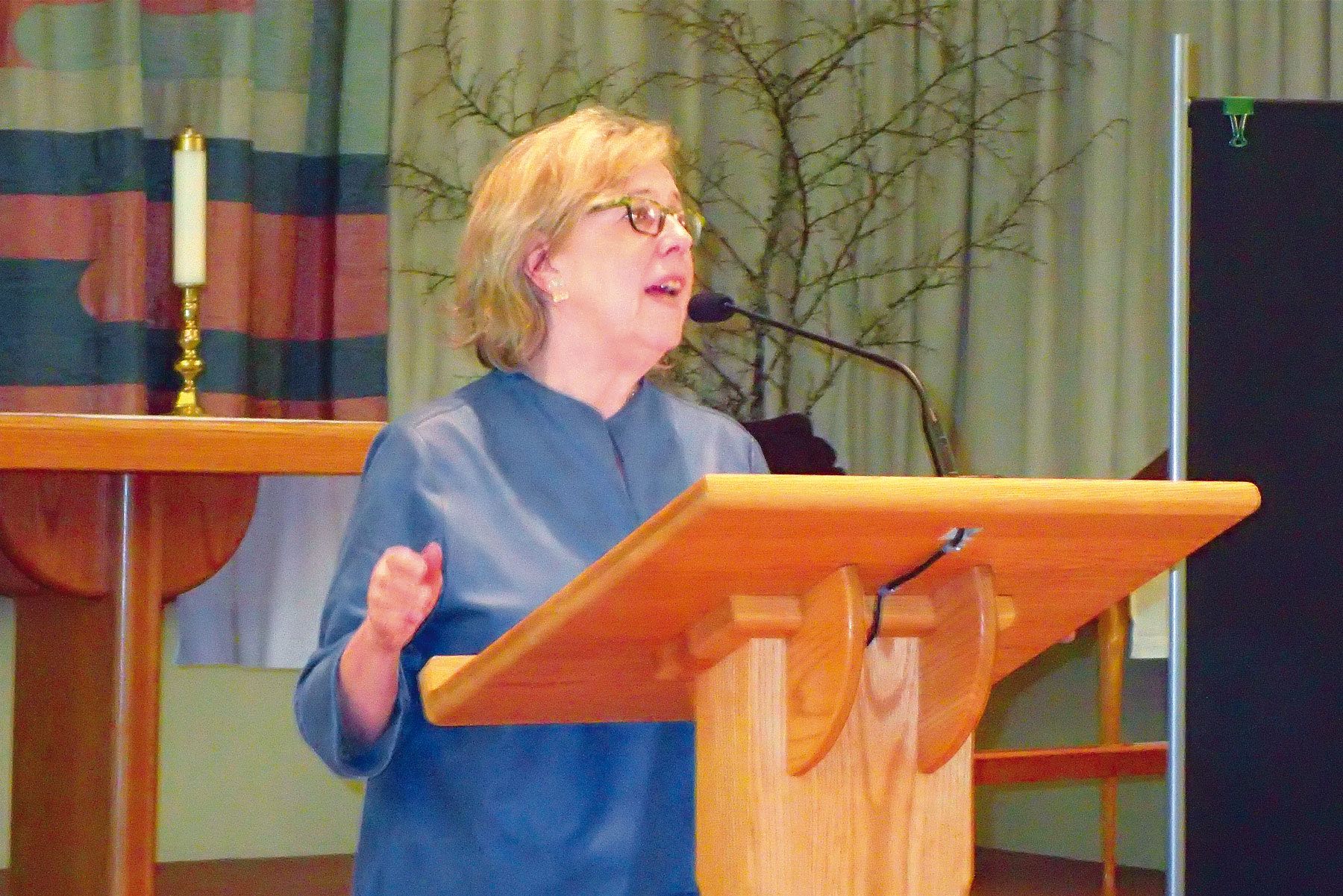Lenten challenge returns to St. Mary, Metchosin
St. Mary of the Incarnation, Metchosin, has been running the Metchosin Challenge for members of the church and the community for five years. The challenge runs for six weeks during Lent, and during those six weeks we host weekly talks from experts on the many challenges that the church and the wider world are facing.
Through the challenge, we invite the community of Metchosin and the surrounding area to get informed about and develop a deeper understanding of issues including climate change, reconciliation and human rights. We hope the talks will inspire action and change, ultimately leading to a better world.

Why does St. Mary run the Metchosin Challenge during Lent? We live in a world that is largely secular in nature. Many people are raised without any experience of religion, and their opinions of Christianity are shaped by news headlines portraying a Christianity that is very different to the Canadian Anglican experience of being Christian. The Anglican church is a church that engages the world as it is. We do not take all of the Bible as literal. We believe in our duty to care for the world and its people. We do not hide our heads in the sand or believe that we will be saved from the consequences of our actions. This is why many of us ended up in the Anglican church.
Our church is responding to the issues of the world: through funding that enables our churches to have less impact on the environment, through programs that reach out to the disadvantaged, and through programs that help those suffering from alcohol and drug abuse. During Lent we are called to try to live more in line with Christ’s ideals. We examine ourselves and try to change for the better. Why not challenge the world to do this with us?
We have just finished this year’s series, called “Hope in a Changing World.” The series focused on climate change, one of the biggest issues we face, and the talks were delivered on Zoom. We had six speakers, all experts in some aspect of climate change and all with a message of hope — because without hope, people won’t act to make a difference. The first speaker this year was Dr. Robert Gifford, who presented some of the reasons people give for not taking action on climate change (“It won’t affect me in my time” or “Technology will figure it out”) and provided some arguments to counter these objections. The second speaker was Nicole Bates-Eamer, who spoke about forced migration due to climate change. Dr. Elin Kelsey, author of Hope Matters: Why Changing the Way We Think Is Critical to Solving the Environmental Crisis, was the third speaker. The fourth speaker was Fiona Hamersley Chambers, who spoke about saving seeds as a way to protect species diversity. The fifth speaker was Shay Wyatt, who presented En-ROADS, a simulation that demonstrates the impact our actions as individuals, communities and countries will have on the future of global warming. The last speaker was Paul Manly, the MP for Naniamo-Ladysmith, who talked about the struggle to get the changes we need through our political system. This year’s Metchosin Challenge was well received by the church and the wider community, with feedback including “very interesting” and “glad you are bringing this to the community.”
Each year, the Metchosin Challenge has a different theme. In the first year, we looked at some of the big issues we face, including climate change, species diversity and reconciliation. The second year coincided with the 70th anniversary of the Universal Declaration of Human Rights. For the third year, we looked at how individuals can make a difference. Last year, we got halfway through exploring how we can implement practical changes to live more sustainably when the series was cancelled due to COVID-19.
Through the years, we have had speakers such as Elizabeth May (twice) and Herbert O’Driscoll, as well as scientists, Indigenous leaders and thought leaders. We have had anywhere from eight to 60 people per session — some from the church and some from the wider community. The Metchosin Challenge has brought many into the church who would not normally have come. Some have stayed.


